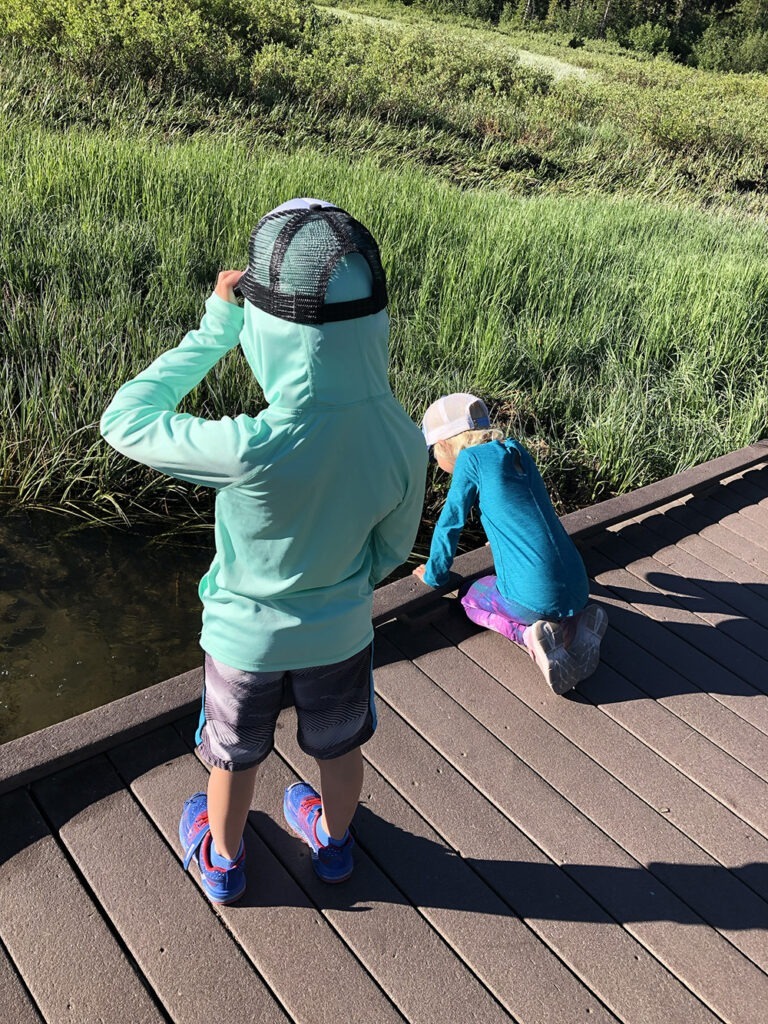 If you’ve been following the EDR blog, you know I have been working on a series of blogs explaining why conflict tends to be so hard for us, why it so often leads to negative outcomes, and what we need to do to make conflict productive and not destructive. As I concluded in my most recent blog To make conflict productive, focus on co-creating mutual gains outcomes, I think making conflict productive really comes down to three main ingredients: calm, curiosity, and creativity.
If you’ve been following the EDR blog, you know I have been working on a series of blogs explaining why conflict tends to be so hard for us, why it so often leads to negative outcomes, and what we need to do to make conflict productive and not destructive. As I concluded in my most recent blog To make conflict productive, focus on co-creating mutual gains outcomes, I think making conflict productive really comes down to three main ingredients: calm, curiosity, and creativity.
I addressed the importance of calm, along with ways to maintain and regain calm in conflict situations, in my prior blog The power of calm when dealing with conflict. And I started to explore the idea of creativity in my prior blog on co-creating mutual gains. So how about curiosity? What does it mean and look like to approach conflict with curiosity, and how do we do this?
First off, what does curiosity mean?
Merriam Webster defines ‘curiosity’ as “desire to know,” “inquisitive interest in others’ concerns,” and “interest leading to inquiry.” Cambridge Dictionary offers the definition “an eager wish to know or learn about something.” The word ‘curiosity’ appears to have roots in the Latin curiosus, which means “careful, diligent; inquiring eagerly” and cura, which means “care.”
In reflecting on these definitions and historic roots, I find it helpful to think of curiosity as a keen, careful, and inquisitive interest in and desire to learn about something. And this is exactly the kind of energy and intention we need to bring to conflict.
Unfortunately, we tend to approach conflict with assumptions rather than curiosity
As I’ve said in prior blogs, to make conflict productive, we need to explore what would be a productive outcome in the conflict situation and what really matters to the involved parties (i.e., what are their key interests). Instead, however, we tend to approach conflict with a bunch of assumptions, which get in the way of exploring these things and creating mutual understanding.
For example, we tend to assume we know what matters to us and others. We assume we know what is and isn’t possible and how the other party will react or what they will say. We often assume someone is at fault and assign blame. Most problematically, we tend to assume that this is going to be a win-lose situation (and that the position we are pushing is the best solution).
These kinds of assumptions are antithetical to curiosity and effectively preclude exploring what really matters and getting to a good outcome in conflict situations. The resulting zero-sum, positional way of approaching conflict is a surefire recipe for making conflict unproductive, as I’ve discussed in previous blogs.
Therefore, to make conflict productive, we have to stop assuming and to instead approach the situation, ourselves, and other people with curiosity—with openness and a keen, careful, and inquisitive interest and desire to learn.
What does it look like to approach conflict with curiosity?
What does this look like in action?
First and foremost, when we realize we are in a conflict situation, we need to maintain or return to a state of calm, since a calm mind is a prerequisite for curiosity; only when we are in a calm state and ready to embrace the opportunity of conflict can we really activate our curiosity.
We then need to assume a “learning stance”—i.e., a state of mind and set of behaviors that are focused on learning and understanding, rather than on problem solving or fixing. We need to put aside our assumptions, our desire to “be right” or “to win,” and our positions, and to instead simply seek to learn and explore what is going on here and what is possible. This is what people sometimes call approaching the situation with a “beginner’s mind.”
A learning stance involves really leaning into what the EDR Program team refers to as “effective listening.” Effective listening is listening in a way that is aimed at truly trying to understand the full meaning of what is being communicated. This means quieting the chatter in our own brains so we can be fully present with another person as they are trying to communicate with us. It means listening with an intent to understand not just the words the speaker is saying, but the meaning behind those words. Since we communicate more through non-verbal means than through the words we say, this involves really being attentive to the speaker’s emotions and affect, and using this information to understand what the speaker is trying to communicate.
Additionally, a key part of effective listening is helping the speaker say what it is they mean. Many of us don’t know exactly what it is that we need to communicate and/or we struggle to find the words to communicate what it is we are trying to say. To help with this, a listener can ask thoughtful, open-ended questions or otherwise prompt the speaker to explore their thoughts and go deeper. For example, we might ask questions such as “How did you feel about that?” or “How did that play out for you?” or we might just say “That is really interesting. I would love to hear more about that” or “That seems really important. Can you tell me more?”
Another core effective listening skill is to reflect back what you are hearing and seeing and to ask the speaker whether you are capturing the meaning of what they are trying to communicate. This might sound something like kindly and curiously asking: “It seems like the fact that I showed up late for the meeting was frustrating for you, since it disrupted the meeting flow. Am I hearing that right?”
When you do this kind of reflective listening, it helps the speaker know that you are truly listening and trying to understand. It also helps them make corrections if you aren’t hearing what it is they feel they need to communicate. If they feel like your recap isn’t quite right, they hopefully will say so. For example, they might say something like “It wasn’t so much that it disrupted the meeting flow; it just felt disrespectful to the people who had prioritized being there on time.”
Importantly, when dealing with conflict, we need to apply a learning mindset and effective listening to ourselves as well as to our interactions with others. For example, one of the most important things we can do when dealing with conflict (other than staying calm) is to truly explore, understand, and communicate what it is that really matters to us—our key interests. To do this, we might need to ask ourselves some thoughtful open-ended questions and pay attention to our emotions and affect, since that can give us valuable insight into key needs and concerns that need to be addressed.
Another important note: the intention we bring to listening and the way that permeates our body language, tone, and affect really matter. If we ask questions defensively, the speaker will feel that and will likely feel attacked. To the contrary, if we bring true curiosity and openness to our listening and question asking, the speaker will likely feel that and be more open to sharing their honest thoughts. The basic takeaway: don’t pretend to be curious. Instead, truly lean into a keen, careful, and inquisitive interest in and desire to learn about yourself, the other person, and what is really going on in the conflict situation.
Curiosity is a superpower. Give it a try!
There is a lot more that can be said about approaching conflict with curiosity, and I will build on these ideas in future blogs. For now, I think the most important thing to drive home is that when you approach conflict with a calm state of mind and a true intent to understand what is going on, what matters for you and other involved parties, and what would be a good outcome, it works wonders. Feeling heard and understood is one of our most basic human needs, and offering each other the gift of trying to understand is one of the most powerful things we can do to move conflict in a productive direction.
I encourage you to really lean into your curiosity and beginner’s mind, especially in situations of conflict. Practice being open to learning. Practice just trying to understand, not to problem solve or fix. Curiosity is truly a superpower. Give it a try!
Danya Rumore, Ph.D., is the director of the Environmental Dispute Resolution program in the Wallace Stegner Center at the University of Utah. She is a research professor in the S.J. Quinney College of Law and a clinical associate professor in the city and metropolitan planning department at the University of Utah. She teaches about, practices, and conducts research on conflict, negotiation, dispute resolution, leadership, and collaborative problem solving. She is also the founder and a co-director of the Gateway and Natural Amenity Region (GNAR) Initiative.
About the EDR blog: Hosted by the Wallace Stegner Center’s Environmental Dispute Resolution (EDR) program, the EDR blog shares ideas, tools, and resources to cultivate a culture of collaboration and help readers be more skillful in working through conflict. Read additional blog posts at edrblog.org.

